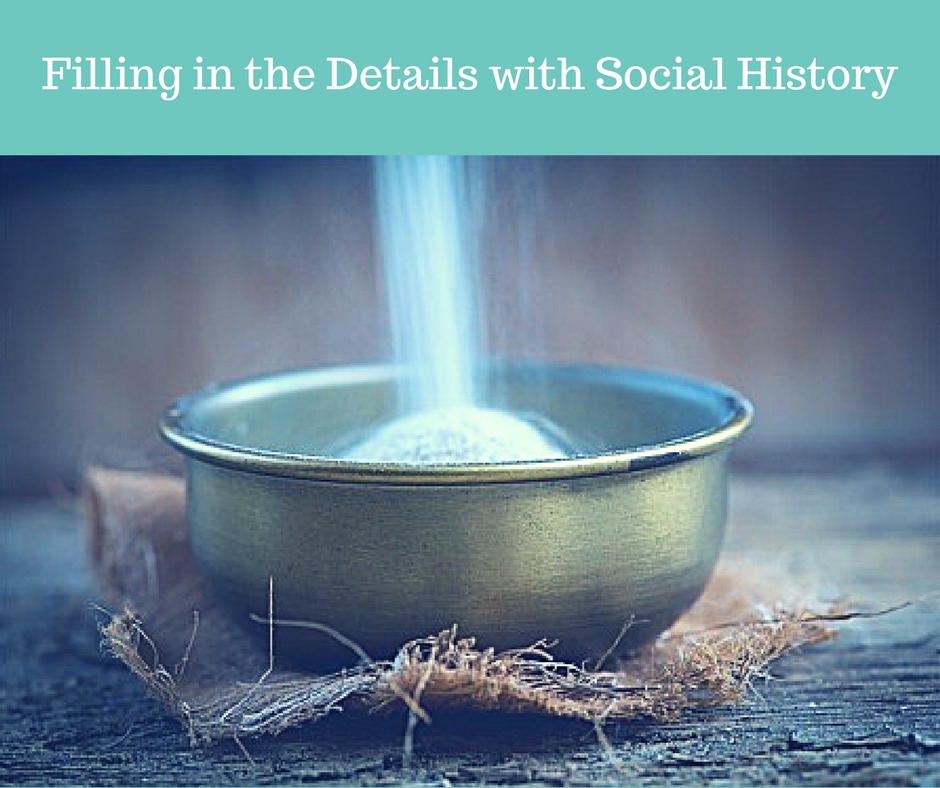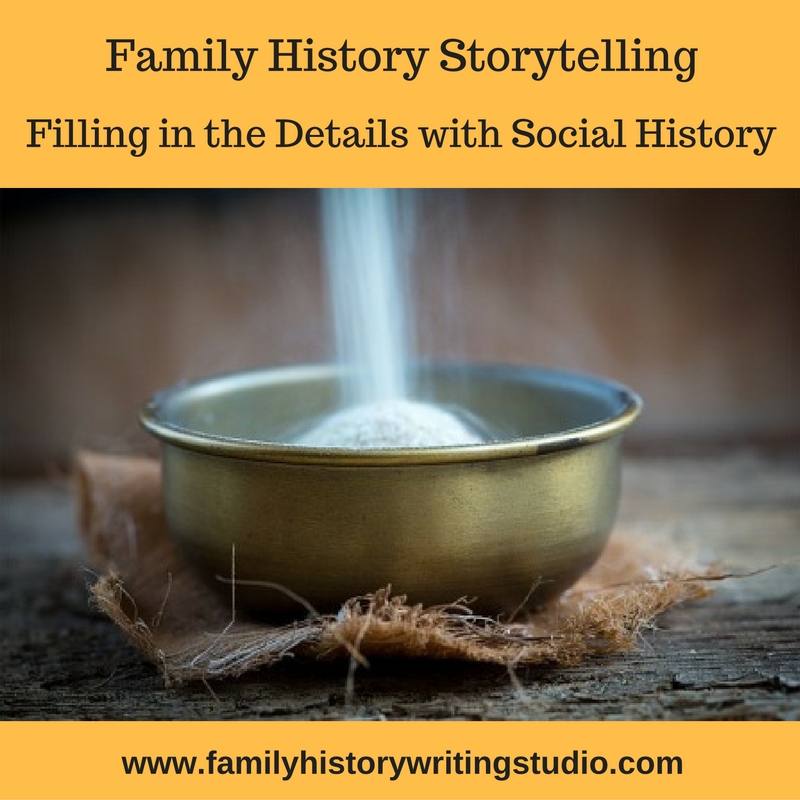History and social history are important ingredients in building the world and stories of your ancestors. Below is a list of resources to help you with that research. If you have found a website that could benefit others please email me at lynnpalermo@eastlink.ca so we can add it to the list. Likewise, if you have found a link on this list that is broken or no longer is available please let us know.
General
WishbookWeb.com – Archives of Sears Wishbooks
Historic Catalogues of Sears Roebuck 1896-1993 (Ancestry.ca)
Digital Libraries
Digital Public Library of America
Documenting the American South
The New York Library Digital Collections
Timelines
Timelines: Sources from History
Disasters
Gendisasters – Disasters that touched our ancestor’s lives
Economics
Love and Marriage
Love and Marriage in the 19th Century
Poorhouses
Waterloo County House of Industry and Refuge
Fashion
Early English Costume: Medieval Women’s Fashions
Had to Be There – fashion covering nearly 1000 years by NY Times
Women’s Fashions of the 17th Century
Travel and Immigration
Historical Background on Traveling in the 19th Century
Voyages – Immigrants on the Ocean (focus on Norwegian emigrants)
Gjenvick-Gjønvik Archives: Social and Cultural History – The Future of Our Past
Canadian Immigration – Canadian Museum of Immigration at Pier 21
Canada
Canadian Social History Series
Canadian Museum of History: Online Resources for Canadian Heritage
A Nation’s Chronicle: The Canada Gazette
War Diaries of the First World War
Canada’s Nursing Sisters – Diaries
Military Oral History – University of Victoria
United States of America
Discovering American Women’s History Online
American Social History Project
Bethlehem Digital History Project
Britain
A Vision of Britain through Time
HistPop: Online Historical Population Reports
The Health of London: Medical Officer Health Reports 1848-1972
Connected Histories: 1500-1900
History to Herstory: Yorkshire Women’s Lives, 1100 to present
The Statistical Accounts of Scotland 1791-1845
Timelines Sources from History
VCH Explore, Explore England’s Past
House of Commons Parliamentary Papers
Witches in Early Modern England
Routledge’s Manual of Etiquette – Victorian Etiquette
Medieval Times
France
Economic and Social Conditions in France during the Eighteenth Century


